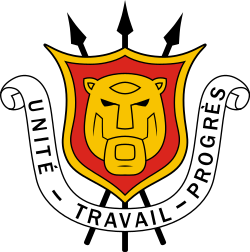| ||||||||||||||||||||||
| Results | ||||||||||||||||||||||
|---|---|---|---|---|---|---|---|---|---|---|---|---|---|---|---|---|---|---|---|---|---|---|
| ||||||||||||||||||||||
 |
|---|
A constitutional referendum was held in Burundi on 18 November 1981. The new constitution would make the country a presidential republic with a unicameral National Assembly, as well as creating a one-party state with the Union for National Progress (UPRONA) as the sole legal party. It was supported by 99.28% of voters with a 94% turnout. [1]